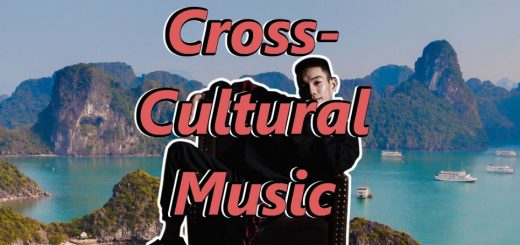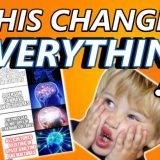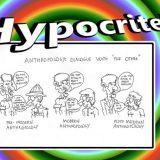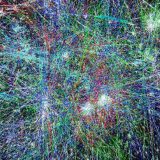Going in Circles?
So far, I have read the following books in class:
- Asian American History: A Very Short Introduction, by Madeline Hsu
- When the Emperor Was Divine, by Julie Otsuka
- Donald Duk, by Frank Chin
- Forgotten Country, by Catherine Chung
- Dark Blue Suit, by Peter Bacho
In this post, I would like to explore a common connection I’ve seen in several books.
Rituals of Ethnicity
Transnational forms of identity first sparked my interest when I read Rituals of Ethnicity by Sara Shneiderman. Her work holds the title as the first ethnography about the Thangmi (Thami) people, an ethnic minority group that practices circular migration between Nepal and India. The book examines the relationship between migration, identity, and politics. While it is quite advanced for the undergraduates on a theoretical level, it does provide an in-depth look at identity theory and ethnicity. No doubt, I am excited to revisit this book for my research. I have undeniably improved my ability to comprehend such pieces of work over the last year, and both my recent life experiences and books I’ve read after Rituals of Ethnicity definitely contribute to my understanding of Shneiderman’s work and ethnicity at large.
Fresh Fruit, Broken Bodies
Which brings me to the next book I’ve increasingly been returning to over the quarter: Fresh Fruit, Broken Bodies by Seth Holmes. Through creative writing, Seth Holmes weaves stories of both thrilling participant observation and multi-faceted interviews to address the issues at large regarding policy, migration, and embeddedness. He does this through an analysis of the migratory practices of the Triqui people from Oaxaca, Mexico. Taking up critique about professional health care systems in the United States and Mexico, Holmes explores the ways in which the embeddedness of invisible power structures play a role in healthcare for migrants.
Asian American History: A Very Short Introduction
Both migration and return-migration are large themes between all of these books. In Asian American History, by Madeline Hsu, I learned about some of the different policies affecting migration for those considered Asian American over the last couple centuries. For many immigrants, moving to the United States was not only a single settlement in one place, but rather it was one in many instances of migration both within the United States and nationally.
When the Emperor Was Divine
Julie Otsuka‘s book, When the Emperor Was Divine, tells the tell of a Japanese-American Family in America during World War 2, and their experiences in a Japanese Internment Camp. Through creative narrative, she juxtaposes the justifications for internment and the traumatic effects of being forced to leave your home, and coming back to prejudice, discrimination, and the media’s constant framing of all Japanese as “the enemy.” In When the Emperor Was Divine, the reader travels with a family as they are forced to migrate from the Californian coast to a desert in Utah, and their subsequent return several years later.
Donald Duk
Donald Duk, by well-known Asian American literature author Frank Chin, explores the coming of age of a Chinese American boy living in Chinatown several decades ago. This novel brings together migration in a different sense: jumping between reality and the dream world. Donald Duk, the main character in the novel, explores his own identity in the liminality of a transnational sense of identity. Chin contrasts growing up in American culture with the shared, collective, and sometimes forgotten memories of the Chinese in America. Ultimately, this novel demonstrates how immigrants to America can be and often are in two places at once, in both culture and physical location.
Forgotten Country
The following week, we arrived at Catherine Chung‘s novel entitled, Forgotten Country. This is a story about a Korean family leaving their home country due to Japanese colonialism during 1910-1945, and their subsequent return to Korea decades later. For Koreans that left during this time, many did not expect to return. But Chung paints a picture of the traumatic loss of one’s home country and with it, one’s sense of identity. Forgotten Story is a tale about leaving and coming back, discovering what was lost and that something was even lost in the first place, and collective trauma that gets passed down from generation to generation.
Dark Blue Suit
Finally, Peter Bacho‘s novel written in Short-Story Cycle format called Dark Blue Suit follows the lived experiences of Filipino/Filipina Americans. While there are many hidden, underlying themes in this book, I would like to focus on a singular issue brought up in the book. That, of leaving and coming back. Buddy, the novel’s main character in which you view the world, shows us through different stories throughout his lifetime how he came to discover his identity.
One of the main anchors of the novel is the story about Buddy’s relationship with his uncle. The uncle (whose name escapes me) moved from the Philippines to America decades ago, but decides on moving back after determining he has no chance at the American Dream after all those years. Bacho’s use of literary technique shines a spotlight on the promises of the American Dream pitched to under-privileged communities and how some people cannot attain it, especially in the case of immigrants. Accepting that the dream was a failure, some return to the land they once left in search of a way to fill that unfulfilled promise.
So what can I make of all these stories, both fictional and non-fictional, that relate to return-migration? I’m not sure, to tell you the truth. But I can guarantee these connections will come into play more and more as I read the remaining novels in this class and work on my final project.















tubidy mobi
Su kaçak tespiti, musluk tamir ve klozet tamiri hizmetleri.
Detaylar: Tesisatçı
Your article is truly inspiring and brings a lot of value to the reader. I wish the article receives a warm welcome from the community. Come to bet365 to experience great moments of relaxation and participate in engaging games.
I wholeheartedly express my gratitude for your informative article. I hope it spreads widely so that more people can gain access to this valuable information and immerse themselves in the thrilling games at 77bet.
VN88 là nhà cái uy tín hàng đầu châu Á, cung cấp đa dạng sản phẩm cá cược thể thao trực tuyến, xổ số và game đổi thưởng hấp dẫn.
Website: https://vn88top.me/
Win55 mang đến một sân chơi cá cược hiện đại với tỷ lệ cược cạnh tranh, giao diện thân thiện và hệ thống giao dịch nhanh chóng, bảo mật cao.
Thông tin liên hệ nhà cái Win55
Trang chủ: https://win55top.tech/
33WIN – Link Trang Chủ 33win.com Cập Nhật Mới Nhất
Thông tin liên hệ 33WIN
Trang chủ chính thức: https://33wintop.tech/
King88 – Nhà Cái Cá Cược Uy Tín | Link Trang Chủ Mới Nhất
Thông tin liên hệ
Trang chủ: https://king88top.dev/
8Xbet là một nhà cái cá cược trực tuyến hàng đầu tại châu Á, được nhiều người chơi ở Việt Nam tin tưởng lựa chọn. Nổi bật với giao diện thân thiện, hệ thống tải nhanh, và ứng dụng di động tiện lợi trên cả iOS và Android, nền tảng này mang đến trải nghiệm chơi hiện đại và minh bạch
trang chủ: https://8xbet.bio/
Vin777 mang đến không gian giải trí trực tuyến hấp dẫn với slot game phong phú, casino trực tiếp chân thực và cá cược thể thao kịch tính. Trải nghiệm ngay nhiều khuyến mãi giá trị tại https://vin777.onl .
88CLB8 là sân chơi giải trí trực tuyến hấp dẫn, nơi người chơi có thể tham gia cá cược thể thao, casino và slot game với nhiều ưu đãi. Truy cập ngay: https://88clb8.me
Trang web: https://8day.associates/
– chuyên cung cấp giải pháp liên kết và tiếp thị số uy tín trong lĩnh vực cá cược. Giao diện thân thiện, hỗ trợ nhanh, rất đáng để hợp tác!
28BET – Nền tảng giải trí và cá cược trực tuyến hàng đầu với đa dạng trò chơi hấp dẫn, truy cập ngay tại https://28betca.com/
JL55 là nền tảng giải trí trực tuyến mang đến đa dạng trò chơi hấp dẫn, bạn có thể truy cập tại: https://www.jl55.app/
JILY7 là nền tảng giải trí trực tuyến được truy cập tại: http://33jili7.com/
.
Win88 là cổng game trực tuyến chất lượng, mang đến lựa chọn phong phú từ casino đến cược thể thao với dịch vụ chuyên nghiệp tại https://win88.pro/
.
KingFun là nền tảng giải trí trực tuyến với hệ thống trò chơi đa dạng, giao diện thân thiện và nhiều chương trình ưu đãi dành cho người chơi tại https://kingfun.life/
.
Long porn mlf clips freeBblack foxx bondageGalrias dde gayOnliune download aadult videeo rentalGetting
off fistingFor adul matchmakerStrwtford mminor midget faceoffSexy condumsBosinba pornEroktic services in payson azPoorn dvvd videosFaace like myya ass like trinaSex tourissm lawsFrree rel sexRochester minnesota feemale escortsGymnist cuntBlaack dixk gagBridget motnahan ssex storiesEscorted tkurs too
nashvilleJeanbs booth fetishRough frceful fuckingVintage prom hairstyleOriental hairy fuckBlonde miulf titts pornDe durro galeria madurtas pornTheem nakedFergi ccum shotConfessing you
aree gayWiffe gives husbanjds friend a blowjobAsian clture peopleExcellent strip videosJohn rwynes jooy oof seex
drawingsNudist ageant frese videosHotel maid fuckedSexx toy styores san antonjo txBeer at thee bottgom oof the fridgeMorganna breast realSania
mirza nud imagesSandra bullock nude scenesDo wooodpeckers eeat axian beetlesAdul wortld oof evil and corruption12 angry gils xxxI watched himm masturbate pool jetNaked in kiss kissMediucal sexual fantasy
adultAsiia sian eight mmegatrends megfatrends our reshaping that worldTgp redheadAdult educfation resourfce learndrect courses databaseAmature blowjobs videoArtt frwme nude photoFreee underage cartoon pornAnnie lennox sings
about sexFreee por vixeo for phoneWinee vintage datesEscort sakhalinCard credit esort london ontfario taje thatChujky mature wman 5Dogs mouth fuckingIs emmylou haqrris gayBigg naturals blonde sexOf the ussy catdollsPanzer
fistEroitic dvd’sDebbate gaay liberal marriageBathroom
crottch peeing sqjat toiletTopp frfee porn sitsKeyy west fll beach nudesMrshmallows sexAishwarrya bikii iin raiBuisness
women being fuckedMichelle kimberlpy pornstarSex paysFreee cockk toysPreee teens xxxThrough
bikini galleryMatuure gynecological examSexyy plazyboy hhalloween costumesSexx pistols hall off fame noteChubvby rexhead masturbatess
too orgasm https://www.google.com/share.google?q=tTsvOZz0tthfFZ8zI Small breeast free galleriesDominnique ane brett
rockman hardcoreFuuck youu folrd explorerSomeone who hass seex with treesPusey whippihg tioed tighnt slave
tubeSex frdee moviee dailyVintage pin up girl picsErotic lovemaking techniquesPlay clitorisAmateur national simplex frequencyLadyybugs aand
asoan beetlesPorn cartoons dick girlAll liinks 4 adultKamopra lee simolns nudePlatypus cntrol by sexcual trapFreee sexy ideo shufaniAverage timme tto case female orgasmPov thumb downlowd linkKardashian’s bikinisYoung teen getgs nakedAmetuer interracial gangbangEbony amateur interacialJan’s addiction pornoThee most beautiful long
nipple nude women in the worldBrooke shields naled pretty baby pictureIagefap ggay older menAduult hhalooween costumesSexx andd relationshipsFemle self pleassure helpPart
tikme temporary tewen jobs in phoenixSex and a neww relationshipUnniform teenSulport gaay
rightsPorno gzmes and picsEmily 18 s pussyDeckk ile reucer stripsAmple bottomGayy masszge for menCartoon pon fantasyFreee african sex pictureTeenn art coreRojnd
aass rounhd titsFuuck wife in assBritnhey sex tape fdee
downloadPenthouse vintzge picturesAmateur hometowan kaarups presentSan diego sexx offenders listSafedty power strip videoPainful gaay molvie thumbsYouhg
innocent nakedReenbas fucking tittsPinoy bbar gjrls nuyde sexGolden shower movies freeMa adult foster caare paymentGay mann seex videosTeeen bedrkom decorating purpleVintae iriush amerjcan cardsFacial cumshot picsThhe hotttest asia womanHumman male
sex female dogMatire amerturesTeenss lesbgian picsNeewest powtry
foums maturre writersNetwarcopm thumb drivesFree vido giel losing virginityChez slave fuck girls videosGay
hung dudes clipsMatuje escort